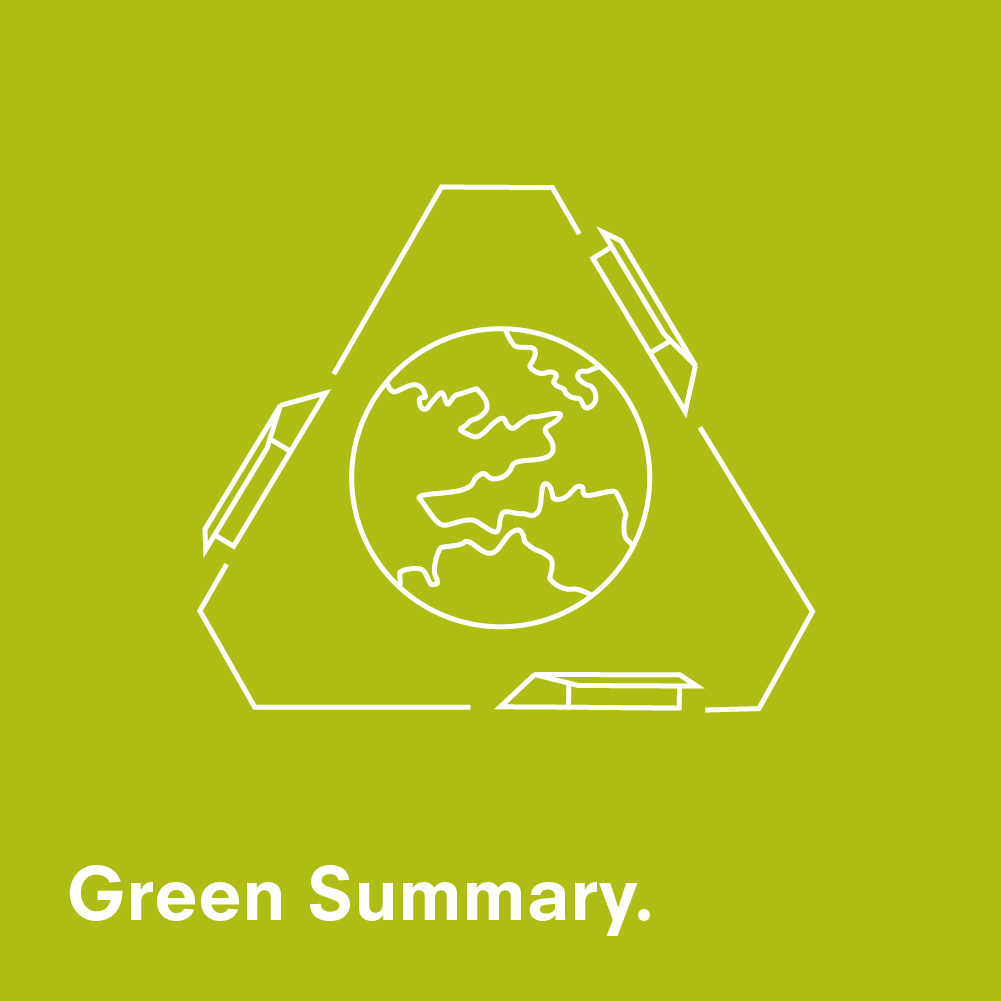
In the modern world it is more important than ever to practice sustainability to secure a greener future. Here at Page Bros we have thought of many innovative ways to ‘go green’ and function in a way that is environmentally responsible.
Waste Removal from Page Bros.
Paper – is sent to UK mills for recycling.
Cardboard – sent to UK mills for recycling.
Wood – Sent for either animal bedding or incineration to make power.
General waste – sent for incineration in the UK and Europe; the incineration process makes power.
Plastic – sent to a UK re-processer for recycling.
Waste Solvents (inc Fount) – sent for gravity separation process. Reclaimed petroleum is separated from alcohol and water. The alcohol and water then undergo biological digestion where bugs destroy the hazardous components and convert them to inert sludge / non-hazardous liquids. The sludge is further processed before being returned to the relevant water course.
Waste Ink Tins & Canisters – sent to waste facility to recover any remaining contents before the canisters are despatched to a licensed contractor for recycling.
Empty Plastic Drums – once collected, the drums in good condition are washed and reused. Damaged drums are shredded and washed to remove labels and residue. The plastic is then air dried and fed into one-tonne sacks before being sold to the commodity markets for recycling.
Inks – waste production inks are collected by licensed contractors. They are put through a solidification treatment process; this uses lime / fly ash to produce low-strength cementation. The solidified waste is disposed of through non-hazardous waste landfill and is subject to current landfill legislation.
Waste oil – gravity separation process with the oil recovered used as a low-grade fuel oil.
Printing Plates (Aluminium) – plates are weighed and baled into 300kg lots before being despatched for recycling. Often these plates are sold back and reused to create new plates.
Paint & Varnish – once collected, the flammable materials can be used as fuel for star blast furnaces or a low-grade fuel. The toxic, oil-based inks are put through a solidification treatment process. This uses lime / fly ash to produce low strength cementation. The process leads to physical, chemical and biological changes to the waste which reduces the hazardous properties, making it safe for final disposal.
Print Toner Cartridges – in collaboration with our Stationery provider, toner cartridges are collected on site and returned for refilling or recycling.
Green Processes and Materials.
Production equipment, processes and materials used are environmentally friendly.
Bio Inks – Page Bros inks are all formulated from sustainable raw materials. The varnish which makes up the bulk of the formulation consists of resins dissolved in vegetable oil. The vegetable oils are generally linseed or soya bean oil. These oils can be used pure or in a modified version as an alkyd resin.
Water Based Coating – The drying process for a water based coating is a purely physical process. When the water content in the coating evaporates or is absorbed, the polymer particles are packed closer together and coalesce into a continuous film.
Printing Press Manufacturer – as part of their commitment to the environment and CO2 neutrality, Heidelberg purchase climate protection certificates which correspond to the carbon footprint of our presses. This footprint is calculated from carbon dioxide generated during the manufacture of the printing press through to delivery and installation. The climate protection certificates are attributed to specific climate protection projects.
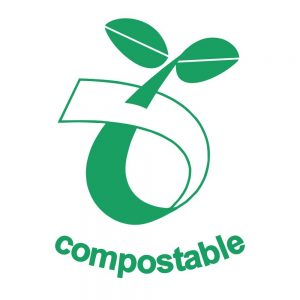
Plastics – Page Bros use a variety of plastics in the packaging processes. The drive has been to reduce and ultimately eliminate the use of non-recyclable plastics, especially those which are single use.
Mailing film and poly bags – Page Bros uses bio-based plastics (at least 20% made from renewable feedstock) which are 100% recyclable, or compostable plastics made from starch-based materials (corn, potato or sugarcane). All these products can be printed on.
Pallet Wrap – Page Bros are switching to a pallet wrap produced from sugarcane. It is produced from 50% renewable resources and 100% recyclable.
Lamination Films – Page Bros use eco-film which is the most environmentally-friendly film available. The film has the same quality and finish as standard thermal film in both matt and gloss. This film takes between 18 to 24 months to degrade depending on temperature and UV light exposure.
Paper wrap mailing – 100% recyclable, paper wrap is less harmful to our planet than plastic poly wrap. Machine-readable, it also qualifies for discounted Royal Mail services, including Mailmark®, which poly wrap and starch-based wraps do not. Plus, it’s fully customisable.
Paper – all paper used at Page Bros is FSC or PEFC certified.
The FSC system (Forest Stewardship Council) allows businesses and consumers to identify, purchase and use wood, paper and other forest products made with materials from well-managed forests and / or recycled sources. FSC’s “tick tree” logo is used to indicate that products are certified under the FSC system.
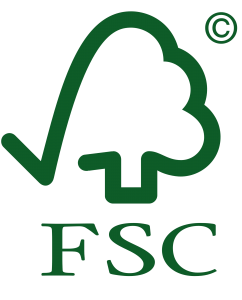
PEFC, the Programme for the Endorsement of Forest Certification, is a leading global alliance of national forest certification systems. As an international non-profit, non-governmental organisation, they are dedicated to promoting sustainable forest management through independent third-party certification. PEFC provide forest owners, from large to small, with a tool to demonstrate their responsible practices, while empowering consumers and companies to buy sustainably.
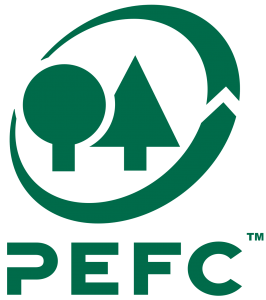
In partnership with our strategic paper suppliers, Page Bros offer customers the opportunity to capture the CO2 emissions from their paper purchases by planting native woodland in the UK via the Woodland Trust and the Woodland Carbon scheme. Carbon capture is a method of mitigating CO2 emissions and provides a reduced carbon solution for businesses.
How it works – the average amount of CO2 emitted from the manufacture and distribution of a tonne of paper has been calculated (verified by the Woodland Trust using Carbon Trust and DEFRA figures). A price per tonne is paid with the amount shown as a separate line on invoices. Page Bros will send you a certificate and the Woodland Carbon logo which can be used – in conjunction with the paper purchased – to demonstrate commitment to using reduced CO2 paper. 100% of the Carbon Capture charge goes directly to the Woodland Trust.
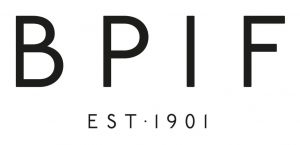
Climate Change Levy Scheme – Page Bros have signed up to this scheme which aims to reduce energy use and CO2 emissions through energy efficiency improvements.

